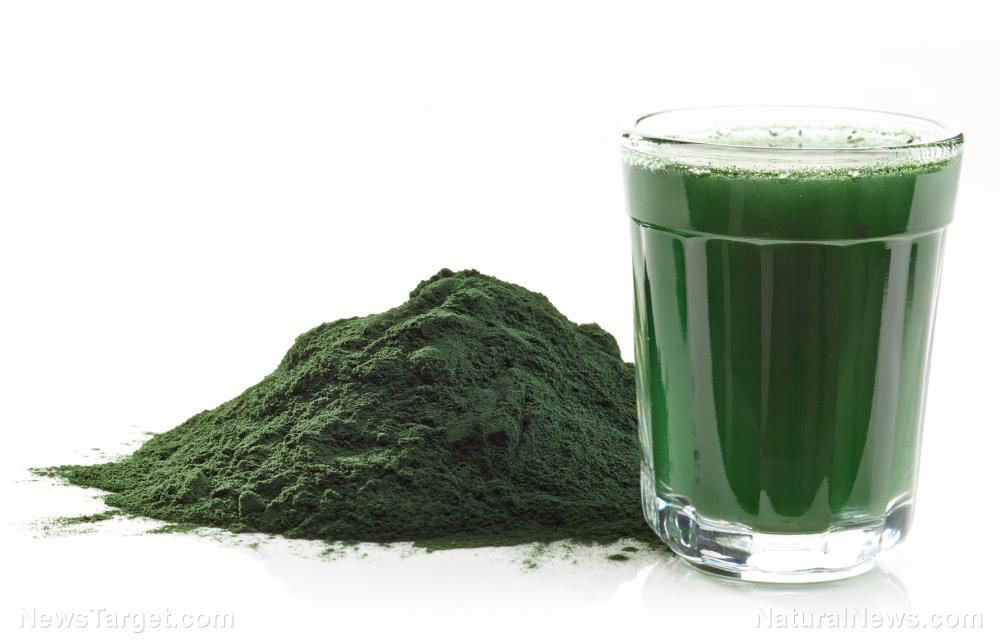Do rumored spirulina benefits stand up to the scrutiny of science? Experts agree with a resounding YES
11/21/2018 / By Cassie B.

With so many foods and supplements being hyped these days for their ability to enhance health, it’s natural to have some doubts. They can’t all be as great as claimed, can they? Most of us are willing to concede that familiar foods like blueberries and broccoli are likely as beneficial as scientists say, but some of the new entrants on the superfood scene, like spirulina, are being met with a healthy dose of skepticism from those who aren’t familiar with them. Let’s see what the science says.
Spirulina is a microalgae known for its distinctive blue-green color. It has been consumed for many years on account of its health benefits. It grows naturally in subtropical salty lakes and oceans. It is rich in nutrients; according to the FDA, it contains significant amounts of iron, magnesium, B vitamins, calcium, potassium and niacin. It is also rich in protein, which accounts for as much as 70 percent of its dry weight. It is considered a complete, plant-based protein source as it contains all the essential amino acids. So, what can it do for your health?
Boost immunity
One of the biggest benefits associated with spirulina is its ability to boost immunity. This might be expected given the many minerals and vitamins it contains, but it also has an edge thanks to its immune-boosting polysaccharides. Studies show that it stimulates the immune system by creating immune cytokines that the body signals when it fights off infections.
A study published in Cellular & Molecular Immunology found that supplementing for 12 weeks with 6 tablets of 500mg spirulina per day was associated with higher white blood cell counts, which is a sign of improved immunity.
Fight cancer
Studies show that spirulina can help fight cancer. In fact, a study published in the Annals of Hepatology showed that it could even be useful in fighting one of the most aggressive types of cancer today, pancreatic cancer. The researchers found that all of the pancreatic cancer cells from humans and mice that were treated with spirulina in tests noted a substantial inhibition of cancerous cell proliferation.
Improve heart health and ease inflammation
Spirulina can also be highly beneficial for your heart thanks to its ability to reduce cholesterol. A study published in the Annals of Nutrition and Metabolism, for example, showed that older adults who took eight grams of spirulina per day noted significant cholesterol reductions at the end of 16 weeks. A different study confirmed this effect, showing that adults aged 37 to 61 who took a gram of spirulina per day had lower total cholesterol, “bad” LDL cholesterol, and triglycerides at the end of 12 weeks.
There’s also the fact that heart disease is considered a chronic inflammatory disease. In fact, inflammation is behind a host of medical problems. Spirulina can fight inflammation thanks to its ability to protect the enzymes and antioxidants that play key roles in reducing inflammation in the body. Studies have also shown that its effects are dose-dependent, which means that the more spirulina a person ingests, the greater its anti-inflammatory effects will be.
Getting the benefits of spirulina
Spirulina is generally recognized as safe, which means it can be used in drinks and foods. In fact, it is sometimes used not only to give a nutrient boost to foods but also to color them. However, that doesn’t mean you should indiscriminately buy spirulina supplements and expect your health to improve; if you’re not careful, you could even make it worse.
That’s because spirulina can be contaminated with toxic metals, microcystins and harmful bacteria if it’s grown under unsafe conditions. Contaminated spirulina can be quite dangerous, causing vomiting, weakness, nausea, rapid heartbeat, liver damage, and even death, and it’s particularly damaging in children.
Make sure you get your spirulina from trusted sources with tests to back up those findings. Spirulina from China should be avoided; Hawaiian spirulina is generally a far better choice. Once you find a safe source, you can mix some spirulina powder into smoothies or salad dressings, or take it in tablet form.
Read Spirulina.news for dedicated coverage on spirulina.
Sources for this article include:
Submit a correction >>
Tagged Under:
cancer, cholesterol, food science, immunity, inflammation, microalgae, natural remedies, nutrients, pancreatic cancer, prevention, spirulina, supplements
This article may contain statements that reflect the opinion of the author
RECENT NEWS & ARTICLES
COPYRIGHT © 2017 SCIENTIFIC NEWS




















